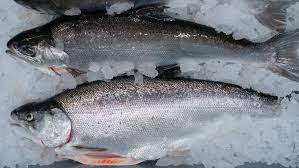
Breaking News
 The Prostate Cancer Test Dilemma
The Prostate Cancer Test Dilemma
 The Separation of Righteousness and Politics
The Separation of Righteousness and Politics
 Russian strike knocks out power in Kyiv FRANCE 24 English
Russian strike knocks out power in Kyiv FRANCE 24 English
 CLAIM: Bitcoin is going to ZERO folks – HOLY SCHLIT! Benny Johnson and Mike Benz on it
CLAIM: Bitcoin is going to ZERO folks – HOLY SCHLIT! Benny Johnson and Mike Benz on it
Top Tech News
 How underwater 3D printing could soon transform maritime construction
How underwater 3D printing could soon transform maritime construction
 Smart soldering iron packs a camera to show you what you're doing
Smart soldering iron packs a camera to show you what you're doing
 Look, no hands: Flying umbrella follows user through the rain
Look, no hands: Flying umbrella follows user through the rain
 Critical Linux Warning: 800,000 Devices Are EXPOSED
Critical Linux Warning: 800,000 Devices Are EXPOSED
 'Brave New World': IVF Company's Eugenics Tool Lets Couples Pick 'Best' Baby, Di
'Brave New World': IVF Company's Eugenics Tool Lets Couples Pick 'Best' Baby, Di
 The smartphone just fired a warning shot at the camera industry.
The smartphone just fired a warning shot at the camera industry.
 A revolutionary breakthrough in dental science is changing how we fight tooth decay
A revolutionary breakthrough in dental science is changing how we fight tooth decay
 Docan Energy "Panda": 32kWh for $2,530!
Docan Energy "Panda": 32kWh for $2,530!
 Rugged phone with multi-day battery life doubles as a 1080p projector
Rugged phone with multi-day battery life doubles as a 1080p projector
 4 Sisters Invent Electric Tractor with Mom and Dad and it's Selling in 5 Countries
4 Sisters Invent Electric Tractor with Mom and Dad and it's Selling in 5 Countries
Farmed salmon producers are feeding GMO canola oil to fish

In a shocking turn of events, authorities in Norway have approved genetically modified (GMO) canola oil as feed for its farmed salmon industry, despite the fact that GMO canola is grown using a banned herbicide called glufosinate that was withdrawn from the French market back in 2017 for damaging human reproduction.
According to reports, the Norwegian Food Safety Authority (NFSA) approved the GMO canola oil for its salmon industry because it was unnaturally genetically engineered to contain omega-3 fatty acids, which when they occur naturally in nature are healthy for the body.
Also known as NS-B50027-4, the GMO canola oil was specifically developed as a land-based source of marine "fishy" acids, as they are also called. Norwegian authorities say this is environmentally beneficial since farmed salmon are already fed fish oil to boost their omega-3 levels.
"Wild fish get their omega-3 from eating algae," reports The Defender, citing GMWatch. "But wild fish stocks are depleted and the price of fish oil has risen, meaning that the amount of fish oil in salmon feed has decreased markedly in recent years."
The 'Aquaterra' omega-3 canola oil is being promoted as sustainable in the media by Nofima, a Norwegian research institute that conducts research and development for the aquaculture industry. Its scientists carried out research on Aquaterra omega-3 canola oil."
GMO canola oil linked to wing deformities in butterflies – what does it do to humans?
It turns out that the GMO canola oil also fixes another major problem with Norway's farmed salmon industry: the lack of natural "pink" pigment in the fish meat, pink that normally comes from astaxanthin as it develops naturally in wild salmon as they go about their lives.



